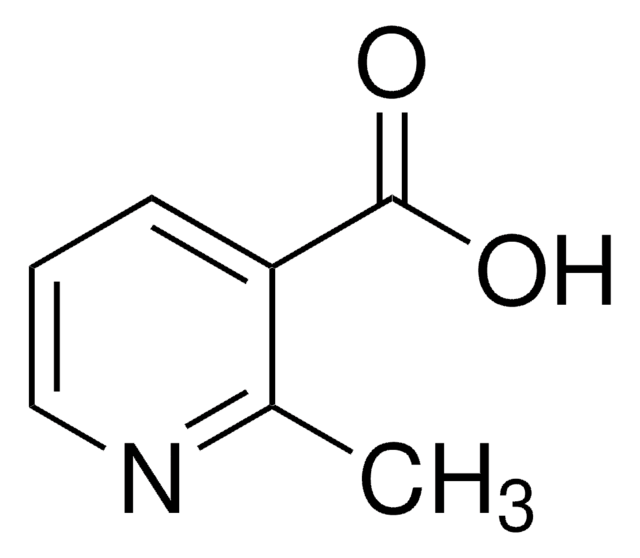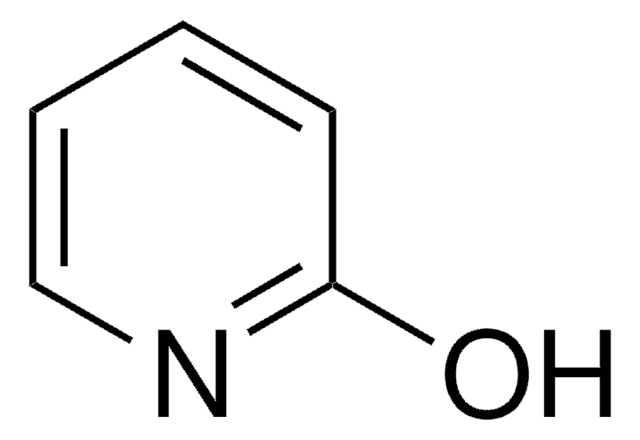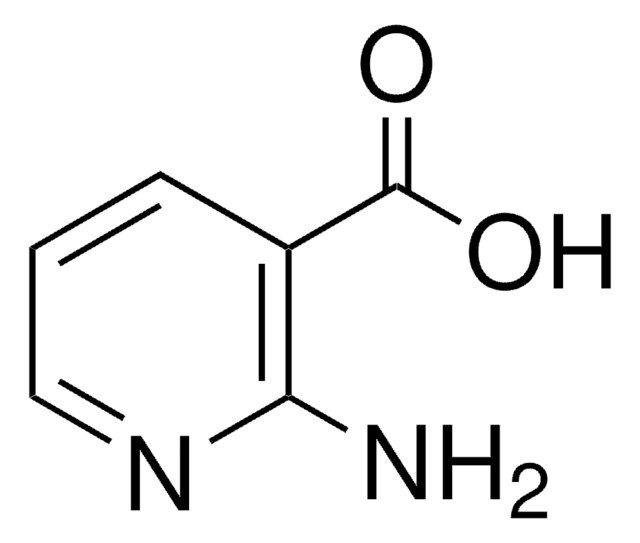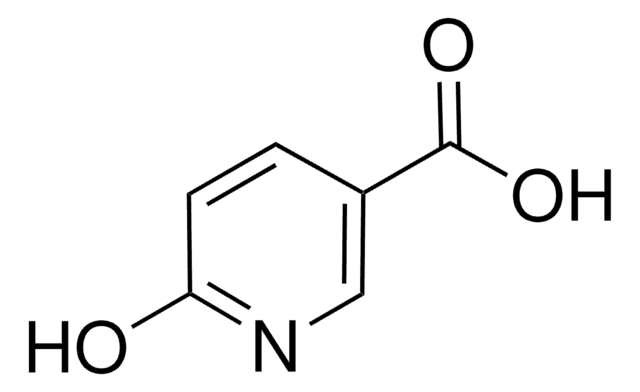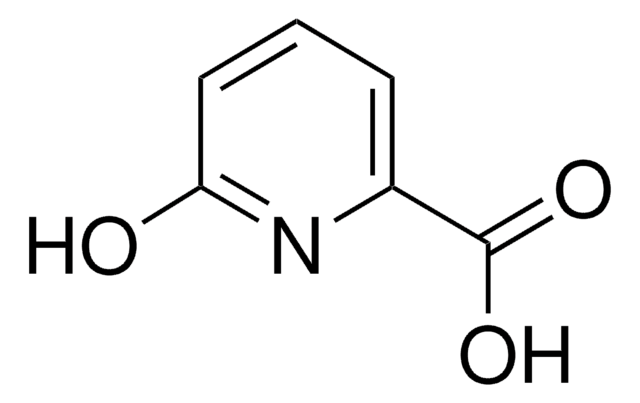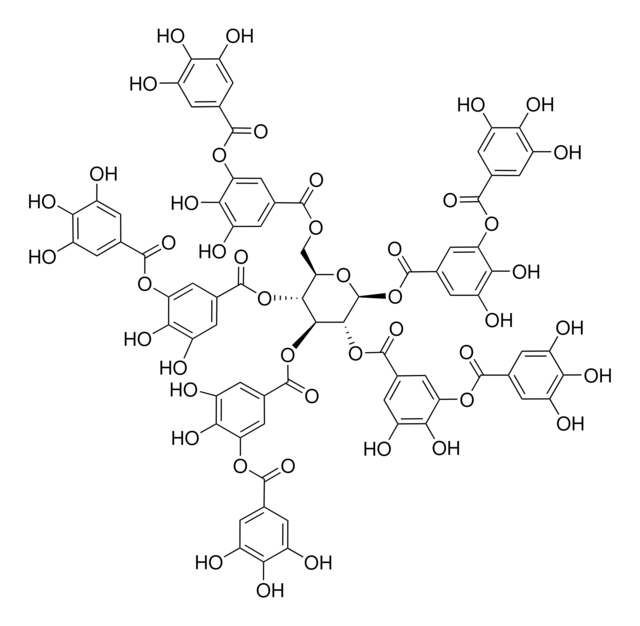251054
2-Hydroxypyridine-3-carboxylic acid
98%
Synonym(s):
2-Hydroxynicotinic acid, 2-Hydroxypyridine-3-carboxylic acid
Sign Into View Organizational & Contract Pricing
All Photos(3)
About This Item
Empirical Formula (Hill Notation):
C6H5NO3
CAS Number:
Molecular Weight:
139.11
Beilstein:
472167
EC Number:
MDL number:
UNSPSC Code:
12352100
PubChem Substance ID:
NACRES:
NA.22
Recommended Products
Quality Level
Assay
98%
form
solid
mp
258-261 °C (lit.)
solubility
formic acid: soluble 50 mg/mL, clear, colorless to yellow
SMILES string
OC(=O)c1cccnc1O
InChI
1S/C6H5NO3/c8-5-4(6(9)10)2-1-3-7-5/h1-3H,(H,7,8)(H,9,10)
InChI key
UEYQJQVBUVAELZ-UHFFFAOYSA-N
Looking for similar products? Visit Product Comparison Guide
Application
2-Hydroxypyridine-3-carboxylic acid may be used in chemical synthesis.
Storage Class Code
11 - Combustible Solids
WGK
WGK 3
Flash Point(F)
Not applicable
Flash Point(C)
Not applicable
Personal Protective Equipment
dust mask type N95 (US), Eyeshields, Gloves
Choose from one of the most recent versions:
Already Own This Product?
Find documentation for the products that you have recently purchased in the Document Library.
Customers Also Viewed
Ade Arsianti et al.
Bioorganic & medicinal chemistry letters, 20(14), 4018-4020 (2010-07-14)
Novel 2-hydroxynicotinoyl-serine-butyl esters have been synthesized. Three-step reactions from L-serine by esterification with n-butanol, amidation with 2-hydroxynicotinic acid and esterification with the corresponding carboxylic acids gave AD-1, AD-2 and AD-3. The toxicity level of esters were determined by Brine shrimp
Anita V Thomae et al.
Pharmaceutical research, 24(8), 1457-1472 (2007-03-28)
Lipid bilayers regulate the passage of solutes into and between cellular compartments. A general prerequisite for this passage is the partitioning of the solute into the bilayer. We investigated the relationship between bilayer partitioning and permeation of three drug-like acids
Anita V Thomae et al.
Biophysical journal, 89(3), 1802-1811 (2005-06-14)
According to the pH-partition hypothesis the charged species of organic compounds do not contribute to lipid bilayer permeation as they generally show negligible partitioning into n-octanol. With this assumption, membrane permeation is related to the molar fraction of the neutral
V B Di Marco et al.
Annali di chimica, 91(9-10), 595-603 (2002-01-05)
The formation of complexes between iron(III) and two ligands of possible relevance to chelation therapy, 2-hydroxynicotinic acid and 3-hydroxypicolinic acid, in aqueous 0.6 m (Na)Cl at 25 degrees C, has been investigated by means of potentiometric titrations and UV measurements.
Our team of scientists has experience in all areas of research including Life Science, Material Science, Chemical Synthesis, Chromatography, Analytical and many others.
Contact Technical Service